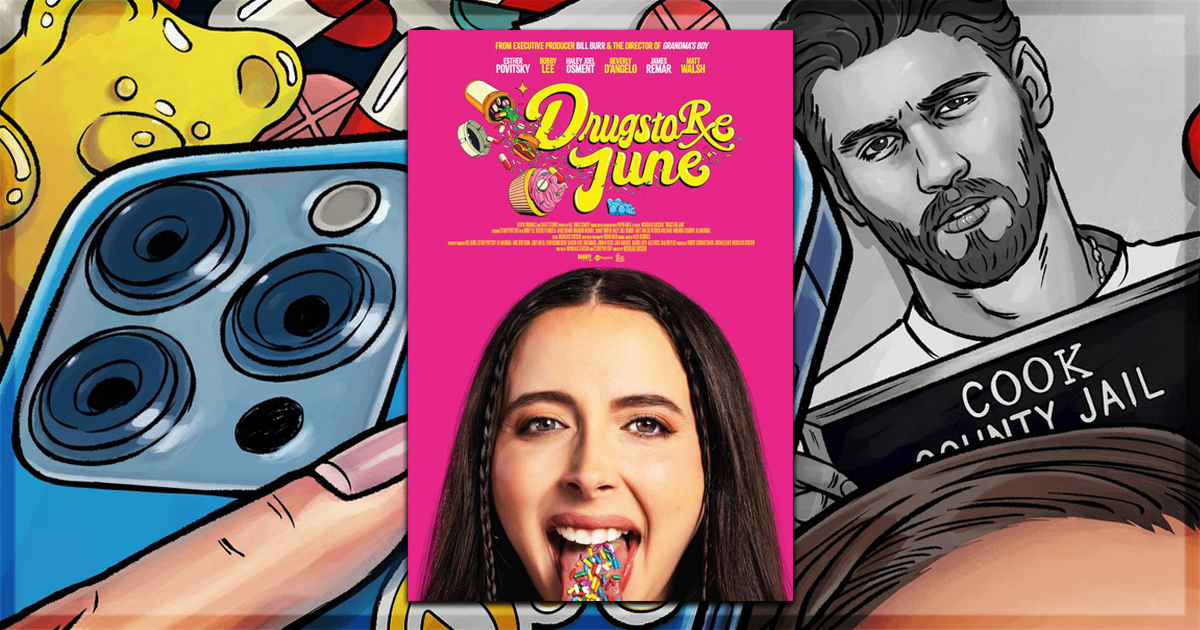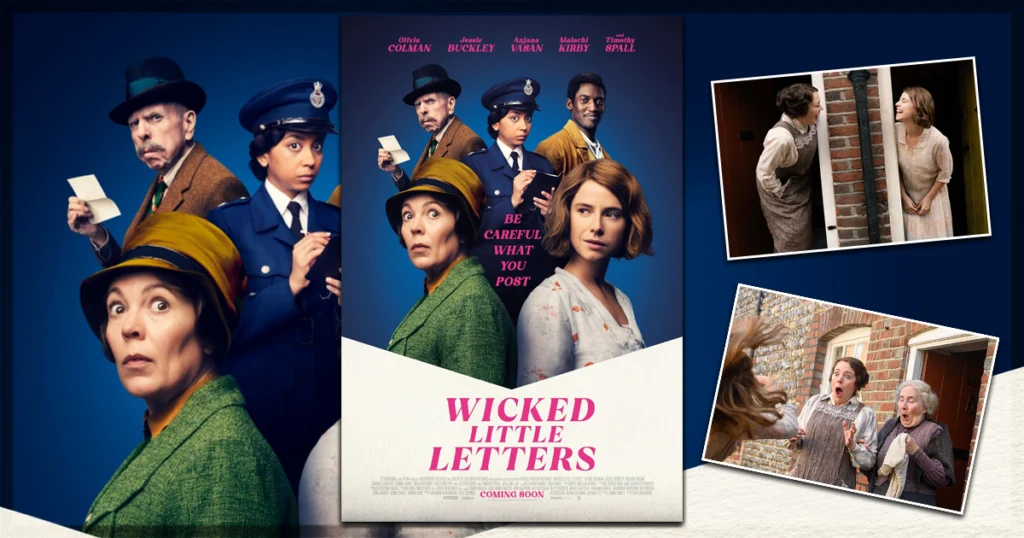The world of Hollywood comedians is an interesting one. Comedians like Robin Williams, Eddie Murphy, and Whoopi Goldberg (to name a few) started in stand-up comedy. Those comedians turned out to be some of the best actors of their generation. In the following years, other comedians (i.e., Bill Burr, Andrew Santino, and Illiza Shlesinger) did the same thing. Now, it is time for another comedian to enter the conversation, Esther Povitsky. With numerous stand-up and podcast appearances, she is now making her feature film debut with Drugstore June.
Also written by Povitsky, she is taking on both ends of the creative spectrum (writing and starring) in Drugstore June. After her hometown pharmacy is robbed, a girl named June (Esther Povitsky), who still lives at home with her parents, attempts to solve the crime. That occurs while she tries to get over her ex-boyfriend Davey (Haley Joel Osment) and become more of an adult. Madcap hilarity ensues as June attempts to solve the crime and become an adult in the process.
Drugstore June’s biggest strength is Povitsky and Goossen’s screenplay
Drugstore June’s biggest strength relies upon the screenplay. Co-written by director Nicholaus Goossen and Povitsky herself, the film has rapid-fire pacing. In its brief 90-minute running time, the jokes simply never let up. For the right viewer, that can create a very enjoyable experience. It can be incredibly joyous if you’re already a fan of Povitsky and the talented supporting cast. Being in the world of stand-up comedy off-screen, Povitsky calls on many of her comedian colleagues. The success of their moments in the film can serve as both a blessing and a curse to the story. That is due to having too many funny comedians in a limited runtime.
Comedians such as Bobby Lee get to have more than just a glorified cameo. He becomes an actual “mostly” fleshed-out character with some scene-stealing moments. The same could be said for actors like Beverly D’Angelo and James Remar. The screenplay allows for a tenderness with those characters, but never in a melodramatic fashion. Both Remar and D’Angelo strike an effective balance of both humor and sincerity. Other funny comedic actors have much less to do, serving as nothing more than cameos. Some of those cameos get significantly more to do than others.
Other comedic powerhouses, such as Bill Burr, get much less to do in their roles. The goal would not be for those cameos to overtake Povitsky’s lead performance but to showcase what Povitsky is capable of. The real fun of Drugstore June resides in her dynamic leading performance. Upon first glance, June is established as a very unlikable character. Audiences know she needs an emotional wake-up call that may never come. The wrong writers could make that message feel incredibly heavy-handed. Thankfully, that is not the case in Povitsky’s theatrical debut.
June evolves in a most unexpected way
From the first scene the story establishes June as set in her ways. To convey this, Povitsky gives the character both naivety and emotional innocence. June is not a dumb character but does not understand what it means to be mature. This can be attributed to the saying, “The journey is more important than the destination.” From scene one, viewers understand what messages they should take away. The fun resides in seeing how June does evolve, but not in the expected way. This primarily involves how she views the people around her and their problems.
In breaking up with her boyfriend Davey (Haley Joel Osment), June thinks her problems are all that matter. It isn’t until the drugstore is robbed that June’s own kind of “self-discovery” takes shape. That discovery is more in how June views the problems of those around her. This includes the reconciliation with certain characters and even simpler moments (like a robbery of a vape store). Povitsky sells these scenes with a level of real commitment. Her naivety misconstrues her ideal fantasies from the truth. Those fantasies make her journey never feel like we’re watching a back-to-school special where lessons are learned at the end.
June does not massively change by the time the film’s credits roll. Instead, she realizes that “growing up” does not require her to become a different person. She learns her true, social media-driven self shouldn’t be considered wrong. While a real job and real adult life are essential, it’s just as important to stay true to yourself. It’s a message that helps her learn independence and gain agency as the story progresses. Viewers still learn the same types of “coming of age story” lessons you’d expect. The difference resides in how they’re presented within the film’s overarching story.
Drugstore June thrives on zaniness and has real endearing qualities
Drugstore June could be considered a vanity project by some filmmakers. Created by a talented comedian (Povitsky), she did get to have noticeable fun with friends. Thankfully, the film itself has much more to offer than that June wants to prove her worth and “maturity” to those around her. To prove it, she gets thrown into some wild and unpredictable situations. The results deliver a film that thrives on zaniness while subtlety conveying certain tropes. The candy-coated, dreamlike, and occasionally raunchy story has real endearing qualities. While June is not likable, viewers sympathize with her trying to prove herself. It’s an idea that I’m sure many can relate to, no matter their age. Like her or not, watching June mature in her unique way offers a plethora of funny moments. The results show that Esther Povitsky is a name to remember in the comedy film world.
Drugstore June is now in theaters.
You can learn more about the film, including how to buy tickets, at the official website. What do you think about Drugstore June? Does it sound intriguing? Let us know on X @MoviesWeTexted.
You might also like…
‘Wicked Little Letters’ Review: A Decently Entertaining Period Movie
‘Land of Bad’ Interview with Writer and Director William Eubank



